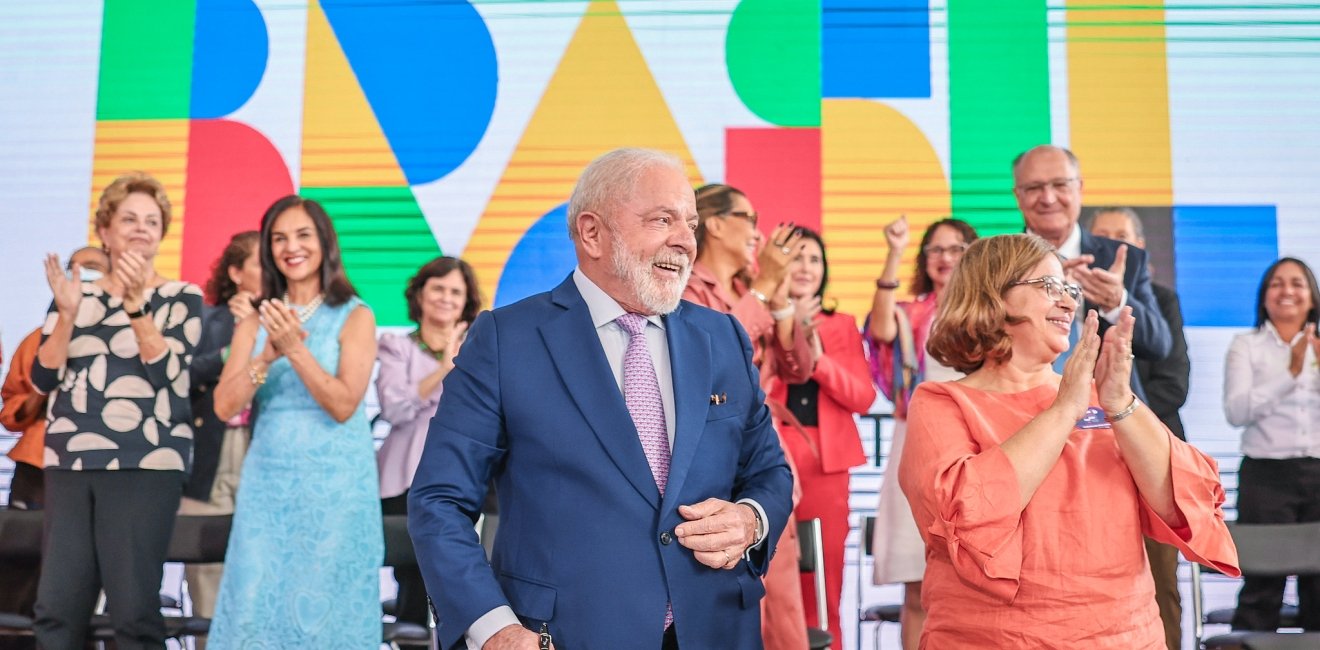
A blog of the Brazil Institute
In his inauguration speech, Brazil's President Lula confidently proclaimed that the world had missed Brazil's presence on the global stage. As he embarked on his third term, Lula enjoyed a fair amount of goodwill from Western nations, eager to welcome his leadership. The United States, in particular, played a crucial role in ensuring a smooth transition of power and safeguarding Brazil's democratic institutions during last year's consequential election.
Lula wasted no time demonstrating his priorities, attending the COP meeting in Egypt and visiting traditional allies such as Argentina and Uruguay. His early trip to the United States signaled a return to a more traditional foreign policy approach. However, the recent controversy surrounding Lula's comments on the Ukraine conflict has cast a shadow over Brazil's diplomatic aspirations.
Lula's visit to China was meant to focus on economic developments and diplomatic normalization with Brazil's largest trade partner. Several agreements, worth approximately $10 billion, were signed, ranging from technology transfers to green hydrogen plants and satellite programs. Unfortunately, these accomplishments were overshadowed by Lula's contentious remarks, suggesting that both Ukraine and Russia chose to engage in warfare, and that the United States was "encouraging" the hostilities.
These comments have jeopardized Lula's impartiality and ability to act as a mediator. The Brazilian leader further alienated Ukraine, the U.S., and the EU by suggesting that Ukraine should cede Crimea. This misstep not only cost Lula the opportunity to play a peace-brokering role but also placed additional strain on the relationship between Brazil and Western nations.
Despite Lula's actions, advisers from Brazil and Western capitals have been working diligently to minimize the damage caused by this divergence in views on Ukraine. They aim to ensure that ongoing negotiations on trade and the environment remain unaffected by the controversy. However, the recent U.S. pledge of $500 million over five years to the Amazon Fund should not be interpreted as an indication that Lula is successfully navigating the relationship between the U.S. and China.
The $500 million announcement does, however, demonstrate that the Biden administration is willing to overlook these recent missteps, recognizing the importance of maintaining a strong relationship with Brazil. The U.S. is extending an olive branch, keeping channels of cooperation open, and emphasizing the need for collaboration on pressing global issues like climate change.
Brazil has long aspired to play a prominent role in the Global South when it comes to peace negotiations. Lula's pursuit of a "multipolar" world, in which Brazil would benefit, is understandable. Yet, his approach to this goal - attempting to dismantle existing powers like the United States and Europe - has triggered a counter-reaction that ultimately undermines Brazil's national interests.
In his quest for a new world order, Lula's actions appear to lean more towards one-sidedness rather than genuine neutrality or equidistance. As a result, Brazil's influence may diminish, and its aspirations for a permanent seat on the UN Security Council could drift further out of reach. It is essential for Lula to recalibrate his approach to diplomacy to ensure Brazil's global aspirations are not derailed by controversial rhetoric and tactics.
Author


Brazil Institute
The Brazil Institute—the only country-specific policy institution focused on Brazil in Washington—aims to deepen understanding of Brazil’s complex landscape and strengthen relations between Brazilian and US institutions across all sectors. Read more


Latin America Program
The Wilson Center’s prestigious Latin America Program provides non-partisan expertise to a broad community of decision makers in the United States and Latin America on critical policy issues facing the Hemisphere. The Program provides insightful and actionable research for policymakers, private sector leaders, journalists, and public intellectuals in the United States and Latin America. To bridge the gap between scholarship and policy action, it fosters new inquiry, sponsors high-level public and private meetings among multiple stakeholders, and explores policy options to improve outcomes for citizens throughout the Americas. Drawing on the Wilson Center’s strength as the nation’s key non-partisan policy forum, the Program serves as a trusted source of analysis and a vital point of contact between the worlds of scholarship and action. Read more

Explore More in Brazil Builds
Browse Brazil Builds
They're Still Here: Brazil's unfinished reckoning with military impunity



